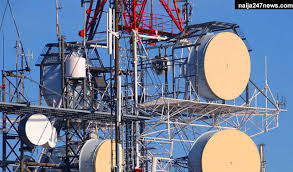The Nigerian Communications Commission (NCC) has approved a partial disconnection of Globacom network operator by MTN over the former’s refusal to pay interconnect debt after several demands by the latter.
The regulatory order implies that Globacom’s subscribers will not be able to make calls to any MTN number but can receive inbound calls from MTN customers.
The industry regulator in a Public Notice issued on Monday gave a 10-day timeline effective from January 8 to settle interconnection debt, after which the disconnection order would be implemented.
The Commission stated: “The Nigerian Communications Commission hereby notifies the public and subscribers of Globacom Limited (Globacom) that approval has been granted for the partial disconnection of Globacom from MIN Nigeria Communications Plc. (MTN), due to non-settlement of interconnect charges.
“Globacom was notified of the application made by MTN and was allowed to comment and state its case. The Commission, having examined the application and circumstances surrounding the indebtedness, determined that Globacom does not have sufficient or justifiable reason for non-payment of the interconnect charges.
“All subscribers are, therefore, requested to TAKE NOTICE that: The Commission has approved the Partial Disconnection of Globacom to MTN in accordance with Section 100 of the Nigerian Communications Act, 2003, and Paragraph 9 of the Guidelines on Procedure for Granting Approval to Disconnect Telecommunications Operators, 2012.
“At the expiration of 10 (ten) days from the date of this notice, subscribers of Globacom will no longer be able to make calls to MTN but will be able to RECEIVE CALLS. The Partial Disconnection, however, will allow inbound calls to the Globacom network. Please note that this disconnection will subsist until otherwise determined by the Commission”, the regulator added.
Available data as of 2020 showed that the interconnect debt stood at over N70 billion, thereby threatening the operators’ capacity to expand their infrastructure for better quality service.






